5 Social Media Marketing Strategies to Look For in 2020
Social media is a globally-dominating phenomenon. It has changed the way we buy, sell, consume, and interact with brands, people, and products. Social media marketing is an industry that is not slowing down for growth or opportunity. But, social media marketing is always changing. In 2020, what can we expect next?
The global study of internet, social, and mobile adoption, study shows us that 1 million people joined social networks every single day in 2017. There are currently 2.82 billion social network users in the world, by next year this number is expected to increase by 14 million.
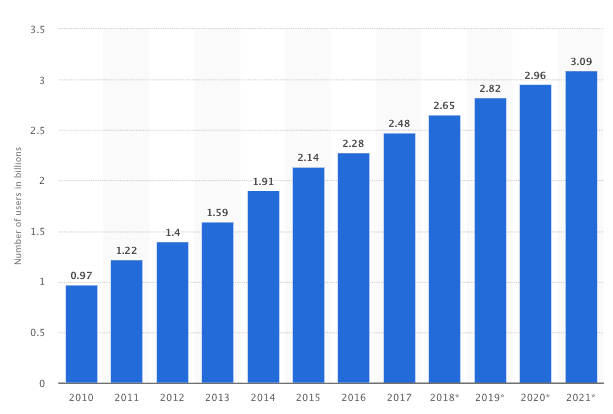
The key to social media success is staying ahead of trends. This seems overwhelming when talking about one of the most rapidly advancing industries in our digital ecosystem, but the reward of implementing even one of these social media marketing strategies into your goals for 2020 will put you in good place to capitalize on social media in the future.
Social Media contests add more value than just followers
For years, running a contest on social media has been one of the most effective ways to attract new audiences. The initial strategy behind social media contests was to gain followers quickly on whichever social network the contest ran.
Now, approaching 2020, the way brands are interacting with their audiences has changed. Marketers are using this strategy to focus on engaging and connecting with social media users.
Other benefits of running a social media contest include:
- Turning existing followers into a community
- Attracting new followers
- Raising brand remembrance
- Getting audience feedback
Along with the shift in how we interact with our audiences online, brands are now focusing more on what their audience values. In order to get value from running a contest on social media, you need to know what your audience values, and offer incentive that aligns with those qualities.
Your social media contest should cater to your target audience and make sense for your brand. This strategy can be more challenging for publishers who don’t actually sell a product but still want to utilize social media contests to engage with their audience or generate traffic.
Ikea can reward contestants with furniture and Taco Bell can give away a lifetime supply of tacos; but publishers, bloggers, and website owners need to focus their incentive on providing things their specific audience finds importance in.
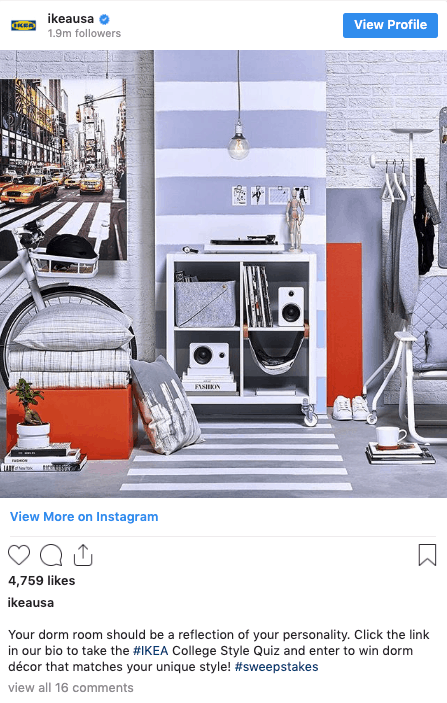
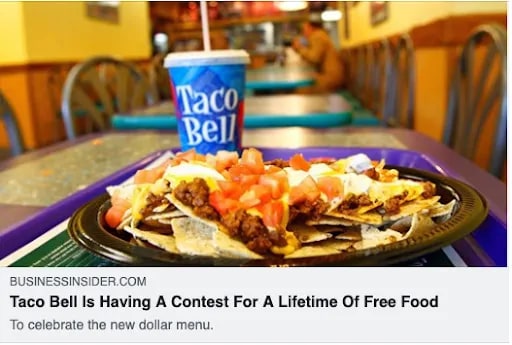
By building your incentive around something your target audience values (and that aligns with your brand) you can avoid the fluke of strictly gaining followers fast for the sake of winning the contest, only for them to remain unengaged and eventually unfollow after a short period of time.
Not having a consumer product to offer as a reward for contests actually help brands get more creative with their social media contest and create something audiences can interact with. In the past, major publications have held contests where readers can submit their own written or artistic pieces for a prize; in addition to the prize, the winner(s) get to feature their work on that publisher’s website. Not only is this contest interactive and engaging, the publisher and the contestant both reach a new audience.
Adobe Photoshop demonstrates a great example of creating contests that are engaging, rewarding, and aligns strategically with the brands’ values all while being a platform-selling company.
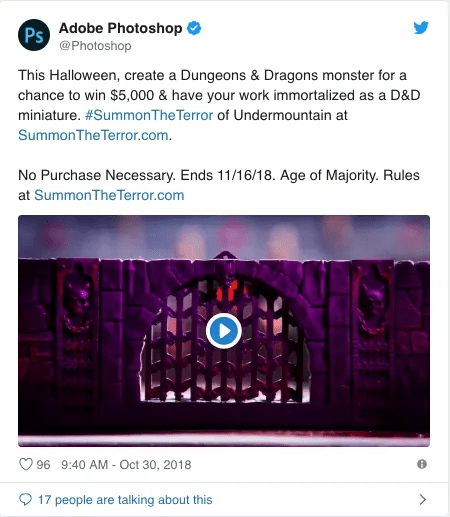
Your call to action for your social media contest can be as simple or creative as you decide, depending on the value of your reward. Social Media contest call-to-actions can be:
- Follow to enter
- Like to enter
- Comment to enter
- Tag a friend
- Take a quiz
- Share or repost
- Vote to enter
- Use a hashtag
- Create your own ______
- Share your own ______
The rise of video content isn’t approaching—it’s here.
Surely you’re already aware of the growing popularity of video content. It began with streaming services like Netflix and Hulu and has escalated to features like IGTV and TikTok. Let’s not forget about YouTube and it’s dominance of internet video.
Living in a visual generation, video content has taken the internet by storm and swept social media up with it. In 2020, expect more marketers to leverage this as a social media marketing strategy.
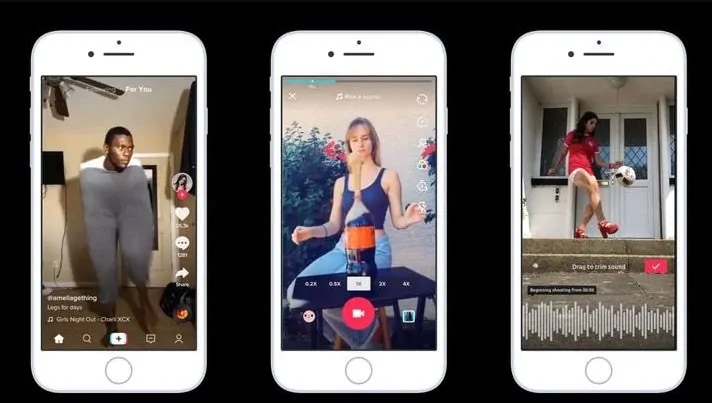
Every social media network offers some type of video-sharing feature. Video content on social media is becoming more impactful to marketing trends because it is one of the most direct ways to engage with users online.
Not only are social media videos direct- they tend to be more “relatable” and imperfect than polished video content you would find through a streaming service.
This is great for publishers that may not have a full-fledged video team or lots of time to spend on video production.
I recently attended Content Marketing World, a conference for content creators in Cleveland, Ohio and sat in on social media marketing leader Brian Fanzo’s discussion on using these emerging trends to stand out on social media. “Perfection is fake, control is an illusion,” says Fanzo, “video allows us to be real and real-time with our audience.”
The average TikTok user spends around 45 minutes per day on TikTok, which is more time than on Facebook, says a report by MediaPost. With TikTok’s quick-growing popularity, marketers and advertisers are directing more of their spending budgets to the app.
I gathered a list of video tools from Fanzo’s Content Marketing World session; marketers can use these tools to accelerate their brand towards video optimized content:
- Adobe Spark: Create your own videos with features that allow you to add media, choose from pre-designed layouts, add text, themes, and soundtracks.
- Vidyard: A video tool for your business, quickly create and share interactive videos with features to send emails as videos, with analytics to track who watches your video and the duration.
- Quicc.io: This tool uses A.I. to create visually appealing and engaging video captions that stand out.
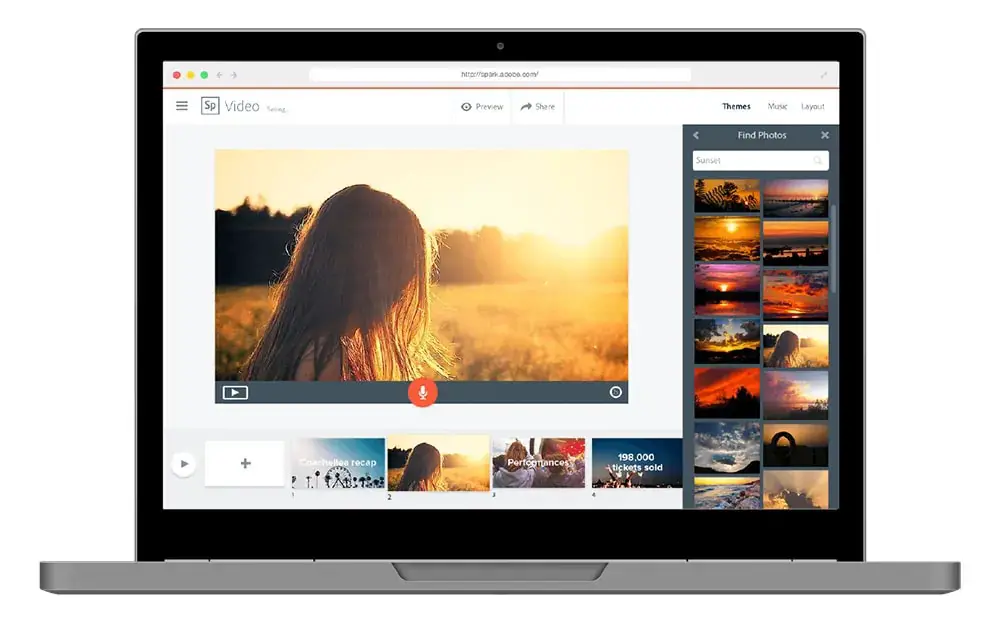
Don’t undermine LinkedIn: Learn about their new features
LinkedIn has been rolling out a lot of new underrated features that can help marketers amplify engagement and make the most out of the platform. An emerging social strategy from LinkedIn expert and Content Marketing World presenter, Viveka von Rosen, says to “treat your LinkedIn company page as a campaign.” Here’s what I learned from her presentation:
While there isn’t an optimal zone for visuals on LinkedIn profiles and company pages, you need to make the most out of the space you do have to create a visually engaging profile. You can do this through new and existing LinkedIn features that enable you to optimize for:
- Banners
- Call-To-Action Button
- Long-form posts
Banners
Someone with a bad social strategy would have a banner-less LinkedIn page displaying the default blue background. If you want to stay ahead of future social media trends to grow your brand or business; use that space to your advantage by turning it into campaign-style images.

Call-To-Action Button
Another new feature LinkedIn offers is CTA (Call-To-Action) buttons that drive traffic to your website. You can leverage this feature to send leads to your blog, sign-up page, registration page, or whatever landing page is most relevant to your business.
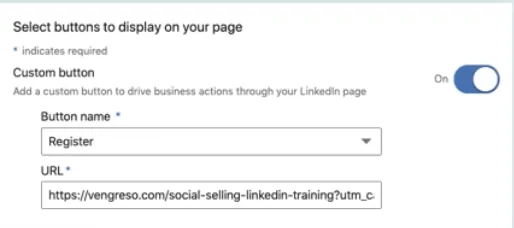
The CTA button will display at the top of your company page directly under your photo and banner. This is another feature you can be periodically changing for traffic to different landing pages.

Long-form posts
LinkedIn’s algorithm prioritizes long-form posts because they are more engaging for the LinkedIn platform. Try to create LinkedIn posts that consist of 700 characters. This includes hashtags, emojis, and mentions. If you include all of these elements LinkedIn is more likely to drive visibility to that post.
Will there be Augmented Reality for Social Media?
Augmented reality (not to be confused with virtual reality) can take the world, live through a user’s mobile camera, and project computer-generated augmentations that are meant to enhance audience engagement.
Snapchat has opened the door for AR technologies in social media, brands can create augmentations featured on Snapchat that appear as “filters” where elements are added to a users selfie camera. This has turned into quite a popular campaign strategy for many major brands.
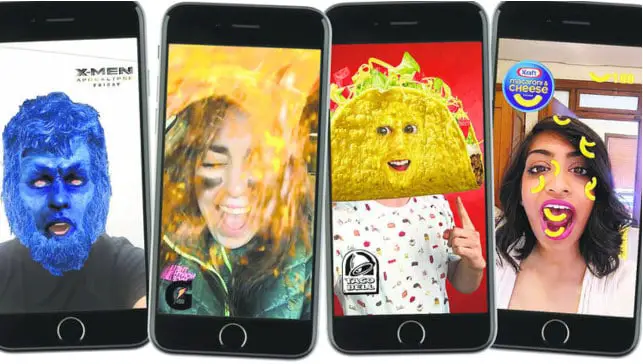
As we move into 2020, expect to see other social networks embracing AR on their platforms. Facebook recently introduced a Facebook AR Studio, a user-friendly studio that marketers staying ahead of trends can use to easily create rich AR experiences.
As AR continues to normalize on social media expect to see brands using AR to speed up purchase paths through virtual try-on and even virtual stores, interactive AR at live events, and more.
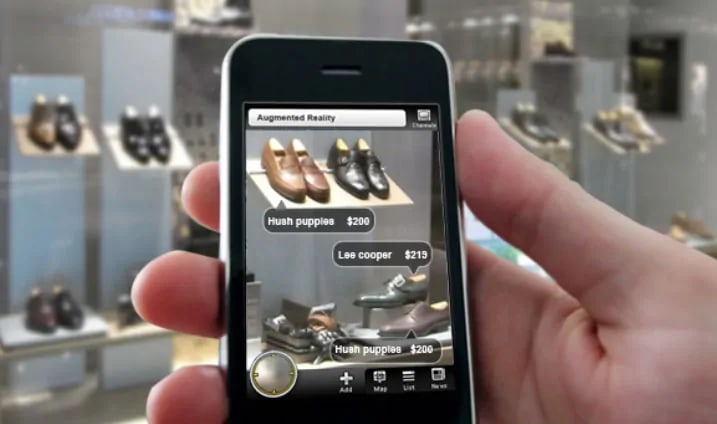
Finding cool ways to engage your website or brand audience with these new and emerging tools offers a big opportunity to grow in popularity very quickly if you can be the first to innovate or tap into these new trends.
Finally, and above all, being relatable on social media is what sets brands apart.
The overarching theme from every keynote speaker and social media marketer who attended Content Marketing World 2019 was relatability. Social media has a dramatic impact on the constant spread of information, because of this digital content is at a surplus and audiences are having a hard time trusting anything they see on social media.
To be a successful social media marketer you want to build an audience of loyal users who trust your brand or business to be transparent, authentic, and relatable. In 2020, ensure that your social media strategy follows these guidelines and your audience loyalty will follow.
“The future to marketing is finding authentic ways to engage with consumers. The future of marketing is not generating leads, it’s building an audience.” — Mark Bornstein, VP of Content Marketing, ON24
Thoughts? Leave them below and I’ll comment back.


